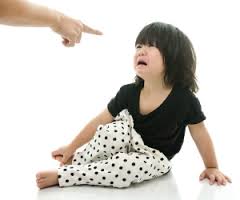 New Health Guide
New Health Guide
While it is natural to feel concerned about your child not growing up as per the developmental timelines but you have to understand that every child develops differently. While most toddlers will start talking by the time they are 18 months old but that does not mean that there is a problem if your 2 year old does not talk. Let's find out more about it.

As per the developmental timelines, your baby should start talking between 18 months and 2 years of age. However, you have to understand that some more cautious 2-year-olds take more time to speak. It is just that they need more time to comprehend what they hear before they start talking. It is worth mentioning that even if your toddler has not started talking yet, there are certain signs of language readiness showing that your baby will soon be there. For instance:
In case you do not notice these signs of readiness by the time your child is 2 years old, you may want to schedule an appointment with your doctor for further evaluation. However, this is not always a cause for concern because there are a few things that timelines fail to cover. For instance, some toddlers do not start to talk by 2 years old, but they may excel in other areas. Some toddlers will start to walk and even climb on things by the time they are 1-year old. It is possible but is above the curve as per the timeline. In this situation, it is possible that they do not excel in some other areas – they may not have started talking yet. Moreover, if you have a baby boy, you need to know that a large majority of boys do not start talking until later in life. Of course, this does not apply to all boys, but is still quite common.
If you are worried and suspect that something is not right, you may want to talk to your doctor. It is a good idea to ask your doctor to check your child's hearing ability. Understand that different types of hearing actually apply to language. You may also want to ensure that there is no fluid in your child's ears, which could be the result of frequent ear infections.
If your 2 year old doesn’t talk, you may consider using certain techniques to encourage talking. Here are a few suggestions.
It is important that you do not just tell your baby what is happening around them, but you should also make them realize that you listen to and understand their non-verbal signals. This helps develop a communication pattern and makes your child more attentive to what you say. This will also encourage them to communicate in the same way as you do.
It is usually not enough just to talk with your little one; you have to talk about meaningful things to encourage them to communicate verbally. Instead of holding a ball in your hand and saying "ball" is not as effective as rolling that ball towards your child and then saying something in context to make them interested and help them understand the language.
Reading a story book to your child is one great way to help them learn the language, but you have to do it responsively, which means you need to forget about everything else and read keeping your child's interest in mind. It is okay if your child wants to stay on one page for several minutes. Just keep talking about everything on that page. You do not want to finish the book as quickly as possible, but you want your baby to learn something new. So, be responsive and move the way your child wants to.
Even if your 2 year old doesn't talk, avoid performance pressure. It means that you should encourage your child to talk, but you should avoid testing their skills. They need your trust, and when you test, it sends a signal that you are not respecting or trusting. Avoid it and let your child take some time to learn how to communicate effectively.
It is natural for your children to try out language but get animals, colors, and other things wrong. You have to resist the temptation to correct them immediately. Not only is it unnecessary, it is actually quite discouraging too. Experts say that when children are still learning to talk, they are likely to refer to a whole class of similar objects by the name of only one object. That is the reason why your little one may be referring to every animal as 'dog'. Give them some time and they will eventually understand the difference between bears and dogs, orange and red, etc.